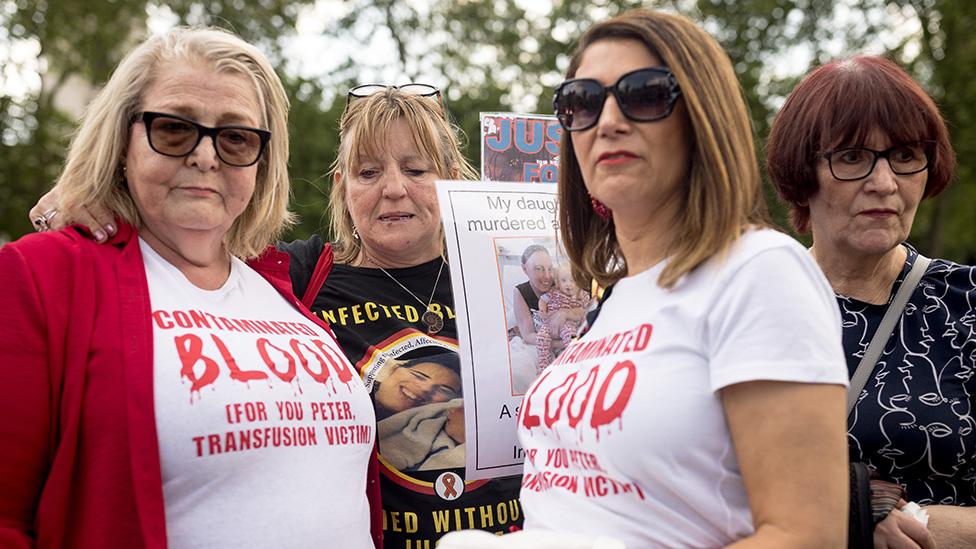Contaminated blood inquiry: Manslaughter claim against consultant
- Published
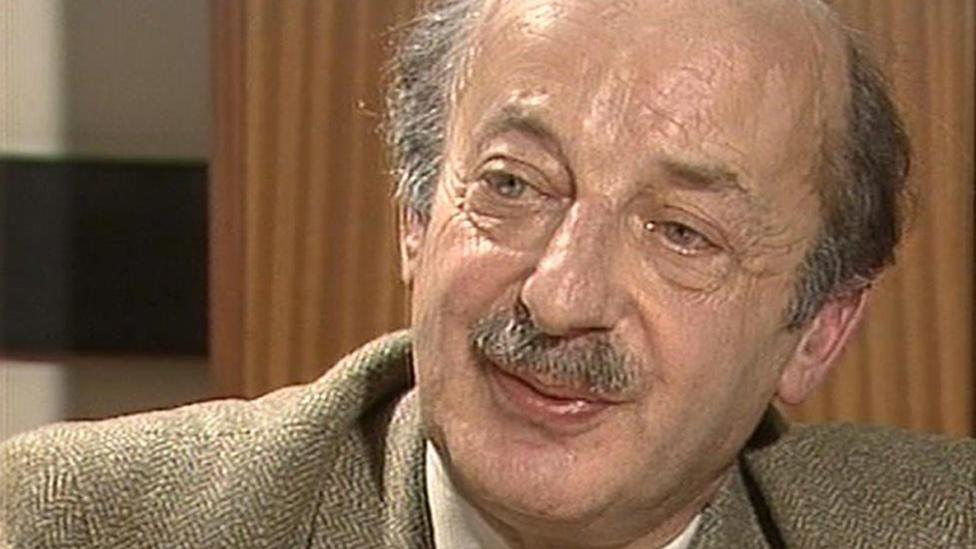
The Arthur Bloom Haemophilia Centre in Cardiff is named after the consultant who died in 1992
A deceased NHS consultant could have been charged with manslaughter over the deaths of haemophiliac patients given blood infected with HIV and hepatitis C, a lawyer for families has claimed.
Des Collins said the reputation of Prof Arthur Bloom "cannot remain intact".
The role of Prof Bloom has been mentioned by families of a number of victims giving evidence to the contaminated blood inquiry in Cardiff.
The health board said it was awaiting the findings of the inquiry.
A haemophilia centre at the University Hospital of Wales was named after Prof Bloom who died in 1992 aged 62. He had been one of the UK's leading haematologists.
But talking to Radio Wales' Eye on Wales programme, Mr Collins claimed "for all practical purposes" Prof Bloom was experimenting on his patients, who were unknowingly part of a study of imported blood-derived treatments for the clotting disorder.
One widow has told the inquiry she wants answers about when Prof Bloom, and also the Department of Health, government ministers and pharmaceutical companies, knew about blood risks.
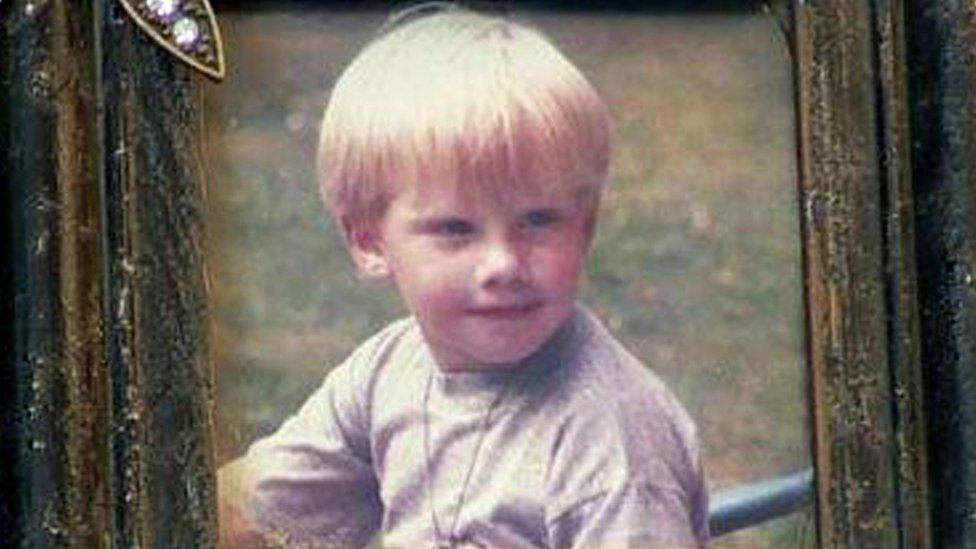
Haemophiliac Colin Smith received the new treatment as a baby, and was infected with HIV
Colin Smith, from Newport, died of Aids in 1990 aged seven. His parents said his medical notes showed he was one of those included in a trial of American blood products, while under Prof Bloom's care.
And the father of haemophiliac Paul Summers told the hearing Prof Bloom did not tell his son he had been infected with HIV and hepatitis C. He said he did not find out until he moved to Plymouth and a doctor there saw it in his medical notes.
While sitting in Cardiff, the inquiry has been read a letter, written by Prof Bloom in 1982 to fellow haemophilia consultants, discussing pharmaceutical efforts to reduce the risk of hepatitis transmissions.
A study in human beings was important, he wrote, and the best subjects for this were "previously untreated patients" - known as "pups".
A BBC Panorama programme previously revealed that, in the year after this letter, Prof Bloom discussed with colleagues the implications of Aids for haemophiliacs.
He recommended it would be "circumspect" for children aged under four to have an older, more cumbersome treatment - cryoprecipitate - rather than imported products.
But weeks later, Colin Smith, who was a baby at the time, was treated with an imported blood product and became infected with HIV.
'He knew what he was doing'
His family is one of hundreds represented at the inquiry by Mr Collins, who acts for a number of campaign and lobby groups.
Mr Collins said: "He was using the material available to him to test on their son in circumstances where he had no authority to do that. And that amounts to an assault. In all probability, given that Colin died, it would be manslaughter.
"He knew what he was doing. It was not a mistake.
"Some may say he did his best. But if that was his best, it fell so far short of what the appropriate standards are, and were, that it is wrong that his reputation should remain intact.
"This isn't trying to ruin the man's reputation after he's dead and he can't defend himself; this is a reputation that he ruined himself."
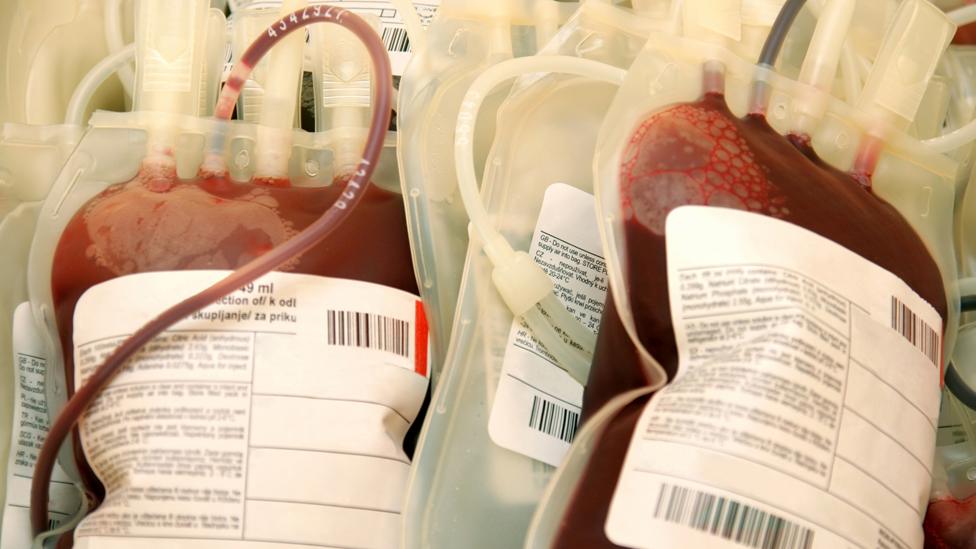
Infected blood donations in the 1970s and 80s were pooled and used in treatments
The programme heard two of Prof Bloom's older patients, Cardiff brothers Haydn and Gareth Lewis, began tracking down paperwork in the early 1990s, including Colin's medical notes, to find what they could about the classification and treatment of "pups".
Mr Collins said: "The Lewis brothers at a very early stage uncovered a mass of material that pointed the finger at Arthur Bloom. Unfortunately, they were not listened to."
The brothers, who were both infected with HIV and Hepatitis C, died in their fifties in 2010.
Cardiff and Vale University Health Board said it was co-operating fully with the inquiry.
It added: "We cannot comment on historical allegations at this stage and will await the findings of the inquiry and then take any necessary steps.
"We are committed to an open and transparent approach and have been working with Haemophilia Wales to support patients and families who are likely to be involved in the inquiry."
You can listen to Eye on Wales: Contaminated Blood on iPlayer and on BBC Radio Wales on Sunday 28 July at 18:32 BST
- Published25 July 2019
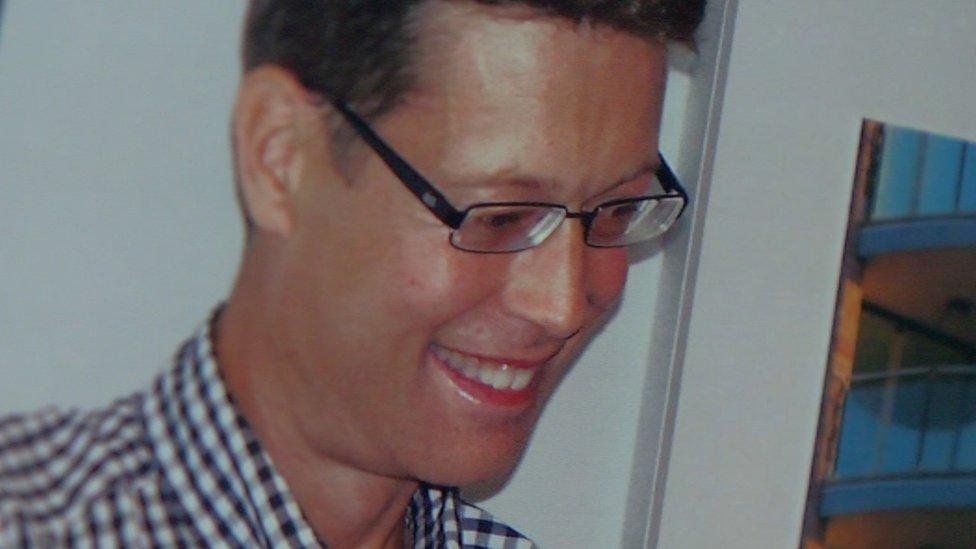
- Published24 July 2019

